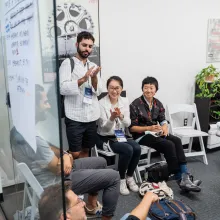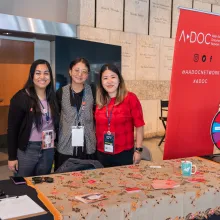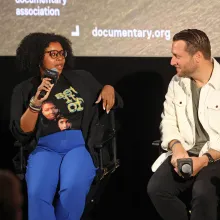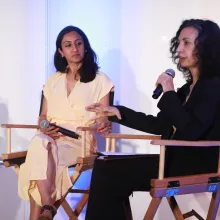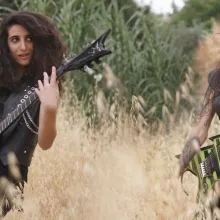One of the foremost critical thinkers of the international documentary ecosystem, Leonard Cortana was tapped by EURODOC program head Nora Philippe in 2023 to manage the inclusion program and strategic partnerships. The resulting program, BIPOC EURODOC, hosts bi-monthly member meetings and monthly public webinars with outside experts to support the ongoing education of its members. The task force also conducts focus groups to inform white papers like this recent study on film festival delegations, in partnership with the #Docsafe initiative. Speaking on Zoom from Mexico City, Cortana spoke with Documentary about the goals of BIPOC EURODOC, the politics of film festival delegations, and why post-screening Q&As are “an extremely unsafe space.”
Field Diversity, Equity, and Inclusion (DEI)
In the weeks since the National Endowment for the Arts announced major changes to its application criteria, many nonprofits across the country have been anxiously awaiting clarity regarding what this might mean for their prospective Fiscal Year 2026 grants. In particular, in recent weeks nonprofit managers and filmmakers are scrutinizing how the NEA applies two recent Executive Orders aimed at shutting down DEI and LGBTQ+ programs.
Before A-Doc (Asian American Documentary Network) formed its roots at IDA’s 2016 Getting Real conference, there was a decades-long history of Asian
Now, while there may be greater attention to filmmakers’ proximity to their subjects and a push for more diverse directors, co-directors, producers, and crew members, there’s also a rise in what some call “cover-your-ass” hires over meaningful collaborations. If the U.S. industry, then, has accepted that documentary projects benefit from having creatives from similar races, genders, sexualities, or nationalities as their subjects, they might be included—but are they actual partners?
With a flurry of announcements in the last six months, the Doris Duke Foundation’s Building Bridges program has stepped squarely into the film funding space in a concerted effort to broaden the pipeline of Muslim-American filmmakers in media and entertainment. The program is partnering with a handful of film institutions, most notably the Islamic Scholarship Fund, the Center for Asian American Media, Sundance Institute, and the Muslim Public Affairs Council’s Hollywood Bureau, on a series of public activations, funds, and fellowships. The programs have taken place in a variety of spaces, from Sundance festival to IDA’s own Getting Real. The activities caught our attention.
During Ranell Shubert’s first eight-year span on staff at IDA, she has had the opportunity to work across many departments, giving her a unique
Essential Doc Reads is our curated selection of recent features and important news items about the documentary form and its processes, from around the
By May 2000, the fear of an impending apocalypse dimmed. The Y2K glitch, the much-hyped computer error that supposedly stemmed from the inability of
“Who is telling what story, from what perspective, using what form, through what gatekeepers?” This four-part question, posed by Chi-hui Yang of the
Sahar Driver and Sonya Childress recently announced their co-directorship of a new initiative to support the sustainability and strengthening of






